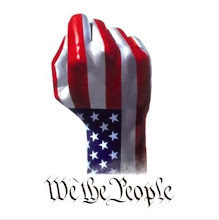The State of Medicaid
Working retail pharmacy allows for the ability to see and hear some startling things. One is the growing misconception that Medicaid provides free stuff. Lately, it has been said to me that “Medicaid is great because it’s free”, and, a 16-year veteran of Medicaid, after inquiring about the cash price of a medication, said, “Nope, let Medicaid pay for it.” People need to realize that Medicaid is not free; taxpayers fund it. It is the pharmacist, the pharmacy technician, and every other hard working person who is paying for it. According to the Florida Pharmacy Association, $15.3 billion, or about 25%, of the state’s annual budget is devoted to Medicaid. In 1998 it was only $800 million. By 2015, it will consume 60% of the state budget. Medicaid fraud, particularly by illegal immigrants, is out of control, and must be addressed.
Working retail pharmacy allows for the ability to see and hear some startling things. One is the growing misconception that Medicaid provides free stuff. Lately, it has been said to me that “Medicaid is great because it’s free”, and, a 16-year veteran of Medicaid, after inquiring about the cash price of a medication, said, “Nope, let Medicaid pay for it.” People need to realize that Medicaid is not free; taxpayers fund it. It is the pharmacist, the pharmacy technician, and every other hard working person who is paying for it. According to the Florida Pharmacy Association, $15.3 billion, or about 25%, of the state’s annual budget is devoted to Medicaid. In 1998 it was only $800 million. By 2015, it will consume 60% of the state budget. Medicaid fraud, particularly by illegal immigrants, is out of control, and must be addressed.
In a 1994 article titled Illegal Immigrants Abuse Health Care Services, Gayle Hanson explains that since the passage of the 1986 Omnibus Budget Reconciliation Act, which “requires states to provide emergency medical and childbirth services to all illegal immigrants through Medicaid programs, the number of people taking advantage of free medical care has grown eighteen fold.” She also stated that, “…40% of all publicly funded births are to illegal immigrants,” and that, “…many of the services provided to undocumented immigrants…are not available to legal residents.” Sally Super, the director of the maternity pavilion at Sharp Chula Vista Hospital at the time, stated, “We have women coming here and they only know how to say two things in English. They want a birth certificate and they want to know how to apply for the Women Infants and Children (WIC) Program.”
A study tilted The High Cost of Cheap Labor, Illegal Immigration and the Federal Budget estimated the total impact of illegal immigration on the federal budget. Among the findings: households headed by illegal aliens imposed more than $26.3 billion in costs on the federal government in 2002 and paid only $16 billion in taxes, creating a net fiscal deficit of almost $10.4 billion. The single largest cost was Medicaid ($2.5 billion).
In August 2002 an Inspector General's report found that most states do not verify claims of U.S. citizenship by those applying for Medicaid benefits. At the time, only Montana, New York, New Hampshire and Texas required applicants to submit documents verifying citizenship. Of the remaining states, 27 did not conduct audits to verify the verity of an applicant's statements, and to determine how often "non-citizens" gained access to Medicaid.
In an August 10, 2005 article titled Medicaid Fraud the Apparent Price for Cutting Red Tape by Alexa Moutevelis, she presents a U.S. Justice Department report showing that 47 states allow Medicaid applicants to vouch for their own legal U.S. citizenship, and more than half of those states do not verify the self-declarations with audits. Jack Martin, special projects director for the Federation for American Immigration Reform (FAIR), admits that, "there's basically no way to know how many people are getting Medicaid illegally." According to the report, illegal immigrants are actually encouraged to declare their citizenship status in order to simplify Medicaid applications. John Valentine, CEO of InfoGlide, when asked to rank the fraud types, commented, "…the big one is Medicaid. Many states could buy an NFL football team with what they could save in Medicaid fraud - each year."
In the Spring 2005 edition of the Journal of American Physicians and Surgeons, Madeleine Cosman, Ph.D. wrote an article titled Illegal Aliens and American Medicine where she shows that between 1993 and 2003, 60 California hospitals went bankrupt and closed down due to the influx of illegal immigrants, 70% of babies born in San Joaquin General Hospital in Stockton, California were those of non-citizens, and Medicaid actually provides illegal aliens with translators. She admits, “Scams, frauds, and cheats are rampant.” (sources include: testimony by the Senate Appropriations Committee, Subcommittee on Labor, HHS, and Education; 2004 L.A., California Center for the Study of Popular Culture report).
The abuse of Medicaid and other welfare programs has been thoroughly documented all over our country. The evidence is there for those concerned about this misappropriation of tax dollars. The people of each state must address this issue in the same way the people of California did vis-à-vis Proposition 187. If this concerns you, then write your representatives in congress and voice your objections.



